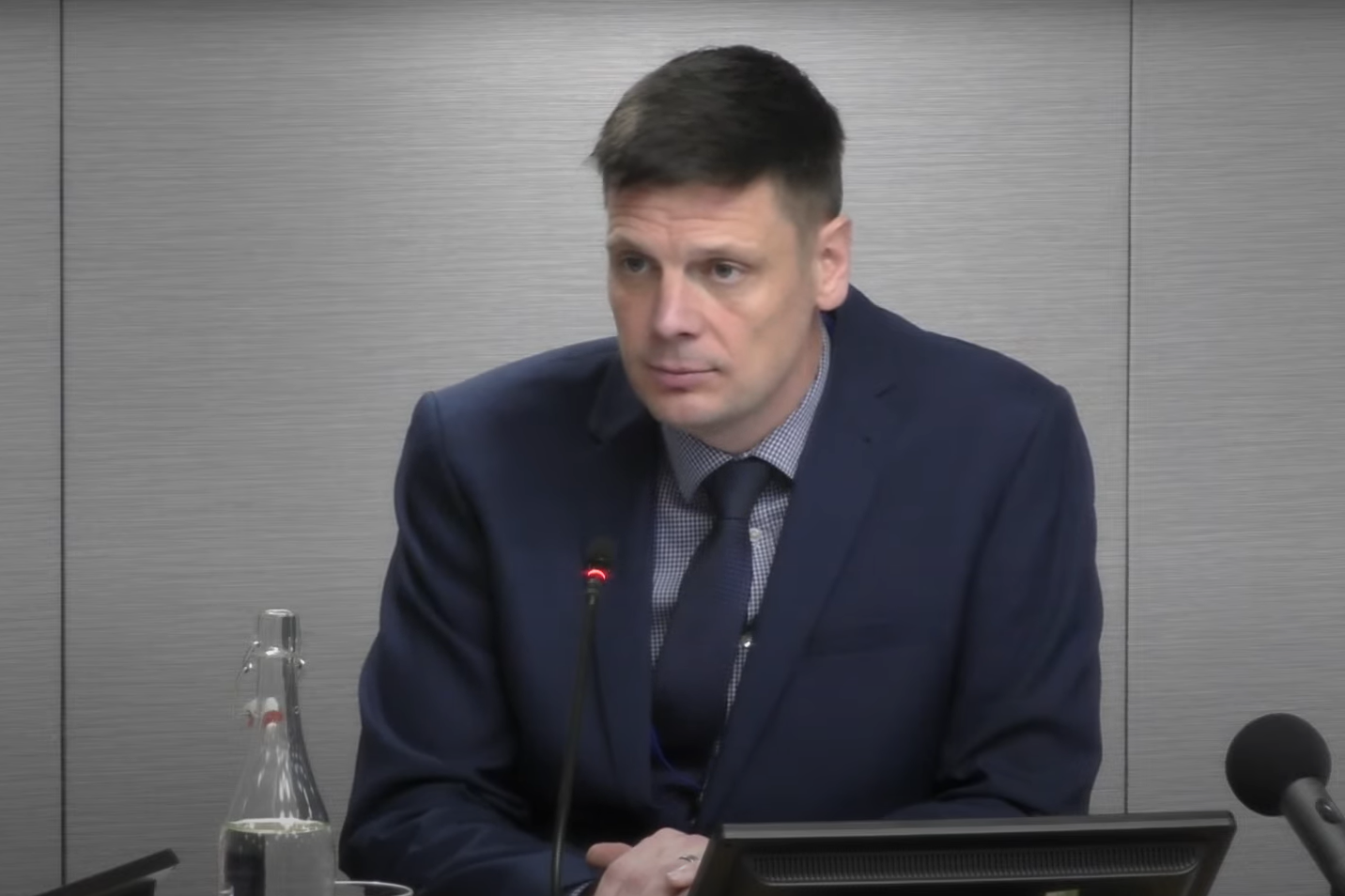Detective tells inquiry race played no part in his actions over Sheku Bayoh
Detective Inspector Graeme Dursley, who was involved in the aftermath of the 31-year-old’s death, continued giving evidence on Wednesday.

Your support helps us to tell the story
From reproductive rights to climate change to Big Tech, The Independent is on the ground when the story is developing. Whether it's investigating the financials of Elon Musk's pro-Trump PAC or producing our latest documentary, 'The A Word', which shines a light on the American women fighting for reproductive rights, we know how important it is to parse out the facts from the messaging.
At such a critical moment in US history, we need reporters on the ground. Your donation allows us to keep sending journalists to speak to both sides of the story.
The Independent is trusted by Americans across the entire political spectrum. And unlike many other quality news outlets, we choose not to lock Americans out of our reporting and analysis with paywalls. We believe quality journalism should be available to everyone, paid for by those who can afford it.
Your support makes all the difference.A detective who withheld information from Sheku Bayoh’s partner after he died while being detained by police has told an inquiry that race played no role in his actions on that day.
Detective Inspector Graeme Dursley led Police Scotland officers on the delivery of the initial death messages to the 31-year-old’s family, and the searches of properties.
The inquiry in Edinburgh, which has so far cost almost £10.5 million, is investigating the circumstances of the trainee gas engineer’s death in Kirkcaldy on May 3 2015, and whether race was a factor.
Mr Dursley previously told the inquiry of his regret after he and a colleague decided not to tell Mr Bayoh’s partner Collette Bell that he was in police custody when he lost consciousness on the day he died.
Mr Dursley, who joined the police in 1996, told the inquiry: “I would hate for the public to think that me as a police officer or the team that I’m working with would have done anything different on that day because Mr Bayoh was black.”
He said if race did play a factor with other officers involved “you would want to get that dealt with and you’d want to get that person”.
Mr Dursley told the inquiry that, while he was protective of the police, that would not impact upon his ability to investigate.
“Although I’m saying I’m a police officer, I love the police and everything like that, I have also investigated police officers,” he said.
“I also know there’s not good police officers, that’s why I’m saying you keep an open mind and if there is something that they have done that was wrong, I would be more than happy to arrest a police officer.
“If the circumstances dictated, I would do that.”
He also told inquiry he could have handled the situation better.
The officer, a detective sergeant at the time of Mr Bayoh’s death, told senior counsel Angela Grahame KC on Wednesday that on reflection there were improvements that could have been made.
The 44-year-old detective said: “I think the biggest thing is the liaising and the updating of the family, is the biggest thing for me.
“Being accurate and providing them information I think sooner. That’s the biggest thing.”
Chief Inspector Colin Robson, 43, began his evidence on Wednesday afternoon. He was the duty senior investigating officer on the day Mr Bayoh died and arrived at the scene at about 7.24am, minutes after an alert was raised on the police radio.
Mr Robson, who was a detective inspector in May 2015, said he “very quickly” realised somebody was on the ground when he arrived at Hayfield Road where Mr Bayoh was detained and said the father-of-two did not appear to be moving when he arrived.
The inquiry heard he was told the knife, which Mr Bayoh had been in possession of, had been found and police batons were also at the scene. He instructed that these should be recorded and collected.
He said when he first arrived at the scene, he was “under the impression we didn’t need to preserve them in situ and the matter had concluded” and that it was the appropriate thing to do.
Officers took the pictures of the items on their personal mobile phones, which he described as a “culture” because of difficulties getting other cameras to the scene at the time, and said he initially thought that the police would soon be leaving after Mr Bayoh had been taken into police custody.
But Mr Robson later told the inquiry: “The knife and the equipment should have been left in situ, and if I had my time again that would have been the case.”
The inquiry, before Lord Bracadale, continues.